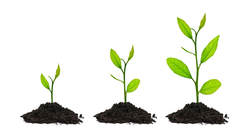why save water?
Australia is a dry continent. Water is precious.
The more water we use - the more stress we place on our rivers, tributaries and dams.
The more water we waste - the more wastewater we discharge and stress our coastal environments.
The more water we make - the more energy we consume and the more we stress our marine environment.
The more water we waste - the more wastewater we discharge and stress our coastal environments.
The more water we make - the more energy we consume and the more we stress our marine environment.
You might be surprised by some of the reasons why we should conserve and recycle water:
- Help protect and preserve our environment (including wildlife)
- Minimise the effects of drought and water shortages
- Save energy and money – saving water will reduce your water and energy bills
- Recreational activities from water sports to gardens and public parks and
- Build safe and beautiful communities – firefighters, street cleaners and hospitals (to name a few) all rely on large quantities of water.
how can I save water?
at home
- Install a water saving shower head - they use around 40% less water than a standard shower head.
- Keep showers short and sweet - a standard shower head uses 15 - 25L of water per minute, reduce your shower time to reduce water usage.
- Turn off the tap when your brush your teeth - this can save 6L of water per minute.
- Fix dripping taps - A dripping tap can waste 15L of water a day, or 5,500L of water per year
- Purchase appliances that have been SmartApproved - When purchasing your next dishwasher or washing machine, check if it has been SmartApproved, an organisation that certifies water efficient products and services in Australia and Europe.
- Only run fully loaded washing machines and dishwashers - those half filled loads add up to lots of wasted water over time.
- Re-cycle greywater - Greywater is waste or recycled water from various sources in your house, including your bath, bathroom sink, laundry, kitchen sink and shower. Reusing greywater, is a great way to save drinking water, but it is important to familiarise yourself with simple safety precautions that need to be considered when using it. Find out more here.
in the garden
- Be water efficient whenever possible - for example, wash your car on the lawn to water and fertilise the grass at the same time. Car shampoos use phosphates similar to many fertilisers.
- Don't use water if another tool can do the job - Use a rake, broom or outdoor blower to clean paths and driveways rather than a hose.
- Only water your lawn when it needs it - If it springs back after stepping on it, it doesn’t require watering. When you do water, a good soaking every now and then is preferable to frequent, light watering. Thorough watering encourages deeper roots, giving you a stronger, more drought resistant lawn.
- Water at the right time - Watering your garden in the early morning or evening reduces water loss through evaporation. Don’t put the sprinkler on if it’s too windy.
- Choose the right plants - Local native varieties and other water wise plants attract wildlife and need less maintenance and watering.
- Mulching plants is key to retaining moisture - As well as reducing evaporation and water run-off, a good quality mulch will also provide nutrients to the plants and restrict weed growth.
- Install a water tank - This is a super effective way to recycle rain water.
In every day life
- Don't pour cooking oils down the sink - This can cause blockages in pipe lines
- Use less washing detergents - Millions of tonnes of byproducts end up in our ocean each year
- Try and purchase natural garments - When you wash your clothes, the fibres end up in our oceans and water reservoirs. By buying natural garments we can reduce pollution.
- Discard of baby wipes, nappies and sanitary items properly - These clog up our sewers and threaten our environment.
- Wash your car at a water saving car wash - Water saving car washes run on recycled water, which helps reduce unnecessary water wastage.





